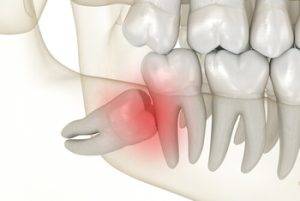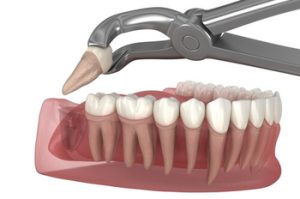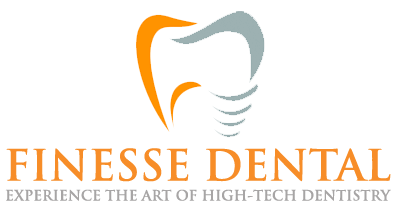Wisdom teeth can cause discomfort, crowding, or other dental concerns, leading many to consider removal. One of the most common questions about this procedure is how much it will cost. The final expense depends on multiple factors. Some cases require a straightforward approach, while others may involve more detailed surgical steps. Understanding what influences the pricing can help in planning for the treatment with confidence. So, what should you expect when it comes to wisdom teeth removal costs?
What Is the Role of Wisdom Teeth and When Do They Need to Be Removed?

Wisdom teeth pain often arises from pressure on surrounding teeth or infections due to trapped bacteria. In such cases, it becomes necessary to remove wisdom teeth to prevent further issues. Early evaluation can help determine whether extraction is required to maintain oral health and prevent long-term concerns.
How Much Will Wisdom Teeth Removal Cost?
In Australia, a straightforward wisdom tooth extraction typically costs around $225 per tooth. Surgical extractions, which require additional steps, can begin at $350 per tooth, with the total price depending on complexity. Consulting a dental professional will provide a clearer understanding of the exact costs involved.
What Elements Impact the Price of Wisdom Teeth Extraction?
Unexpected dental procedures can often lead to financial concerns, and wisdom tooth removal is no exception. Several elements influence the total expense, and understanding them can help in planning for the procedure effectively.
The Complexity of the Extraction
One of the most significant elements affecting teeth removal cost is the complexity of the procedure. A fully erupted wisdom tooth is generally easier to remove, requiring a straightforward extraction. However, if the tooth is impacted, the procedure becomes more complex. In such cases, additional techniques, such as surgical extraction, may be required, increasing the overall expense. The positioning of the tooth, including whether it is angled, partially emerged, or pressing against nerves, further influences the complexity.
The Number of Teeth Being Removed
The total wisdom tooth extraction costs vary based on how many teeth need removal. Some individuals require the extraction of a single wisdom tooth, while others may need all four removed at once. Removing multiple teeth in a single visit can sometimes be more cost-effective than undergoing multiple procedures. However, it may also require additional surgical time, anaesthesia, and post-procedure care, affecting the final expense. A detailed evaluation helps determine the most effective approach for managing both the treatment and costs effectively.
The Type of Anaesthesia Used
The choice of anaesthesia plays a role in determining the cost of wisdom teeth removal. A simple extraction may only require local anaesthesia, which is generally more affordable. For more complex cases or multiple extractions, patients may require sedation or general anaesthesia to ensure comfort throughout the procedure. The type of sedation used—whether intravenous, oral, or gas-based—can influence the total expense. A consultation helps determine the most suitable option based on the patient’s needs and the procedure’s complexity.
Pre-Procedure Evaluations and Imaging
Before proceeding with wisdom tooth removal, thorough assessments are necessary to ensure a precise and safe extraction. X-rays or 3D imaging scans help identify the exact position of the tooth, surrounding bone structure, and potential risks. These diagnostic tools contribute to the cost but are essential for planning an effective extraction. The level of detail required in imaging depends on the complexity of the case, with some patients needing more advanced scans for accurate assessment.
The Experience and Location of the Dental Provider
The cost of the treatment can also vary based on the clinic’s location and the experience of the dental professional. Clinics in metropolitan areas often have higher pricing due to increased operational expenses. Additionally, the expertise of the professional performing the extraction can influence the price, as more experienced dental practitioners may charge higher fees for their services. Seeking treatment from a reputable clinic like ours ensures quality care, but comparing options can help in making an informed decision.
Emergency Extractions and Additional Costs

Planning for a wisdom tooth removal involves understanding the various factors that contribute to the overall expense. The procedure’s complexity, the number of teeth being removed, and anaesthesia choices all play a part in determining the final price. Discussing these aspects with a professional allows for better preparation and ensures that the necessary care is received without unexpected costs.
What Occurs During the Wisdom Teeth Removal Procedure?
Initial Assessment and Preparation
Before proceeding with the wisdom tooth removal procedure, a thorough examination is conducted. This involves reviewing dental history, taking X-rays, and assessing the position of the teeth. Some wisdom teeth may be fully erupted, while others remain partially or fully impacted beneath the gums. The complexity of the case determines whether a simple or surgical extraction will be required. Once the evaluation is complete, the most suitable approach for the removal is planned.
Administering Anaesthesia for Comfort
To ensure a comfortable experience, anaesthesia is administered before the tooth extraction begins. The type of anaesthesia used depends on the complexity of the case and the patient’s preference. Local anaesthesia is typically sufficient for simple extractions, numbing only the affected area. However, for more complex wisdom teeth removal, sedation or general anaesthesia may be recommended. These options help patients remain relaxed or completely unaware during the procedure, making the process more manageable.
The Process of Removing the Tooth
For a straightforward wisdom tooth extraction, the dentist loosens the tooth using precise instruments before carefully removing it. If the tooth is impacted or positioned at an angle, a surgical extraction may be necessary. This entails making an incision in the gum tissue to access the tooth. In some cases, the tooth may need to be divided into smaller sections to allow for easier removal. The approach used is determined by the placement and condition of the wisdom tooth.
Managing Complex Cases with Surgery
When dealing with difficult cases, wisdom tooth removal surgery is performed to ensure a safe and effective extraction. This is typically necessary when a tooth is positioned deep within the jawbone or enclosed by soft tissue. The procedure may involve removing small portions of bone covering the tooth to facilitate its removal. Once the wisdom teeth are extracted, the area is carefully examined to ensure no fragments remain. Surgical wisdom tooth removal requires precision to minimise trauma to surrounding tissues.
Closing the Site and Controlling Bleeding
Once the tooth has been removed, the next step involves ensuring proper healing. If an incision was made, dissolvable stitches may be placed to close the area. A gauze pad is then positioned over the extraction site to control bleeding and support clot formation. This clot plays a crucial role in protecting the underlying bone and aiding in the recovery process. Proper placement of the gauze helps to stabilise the area and promote initial healing.
Final Checks and Recovery Instructions
After the wisdom tooth removal procedure is complete, the dentist assesses the area to confirm that everything has been successfully addressed. Patients are monitored briefly to ensure they are stable before being discharged. Clear instructions regarding aftercare, medication, and activity restrictions are provided to support a smooth recovery. If a surgical extraction was performed, additional follow-up appointments may be scheduled. While the procedure itself is straightforward, proper care following wisdom tooth removal is essential for optimal healing.
Understanding the process of wisdom teeth removal helps patients feel more prepared for their appointments. From the initial assessment to the final checks, each step ensures that the procedure is performed safely and effectively. Whether undergoing a simple or complex wisdom teeth removal, professional guidance ensures that the process is managed with precision and care.
What Aftercare Is Required After Wisdom Teeth Extraction?
After wisdom teeth removal, The healing process is critical in ensuring a smooth recovery and preventing complications. Following the correct aftercare measures helps manage discomfort, protect the extraction site, and promote proper healing.
Reducing Swelling for Faster Healing
Swelling is a common response following wisdom teeth extraction, often peaking within the first 48 hours. Applying a cold compress to the cheek at regular intervals can help control inflammation and ease discomfort. Using an ice pack wrapped in a cloth for short durations can assist in reducing swelling without causing irritation to the skin. Avoiding vigorous physical activity in the first few days also helps prevent increased swelling. Keeping the area cool and resting adequately contributes to a smoother recovery.
Maintaining Oral Hygiene Without Disrupting Healing
Although normal brushing and flossing routines need to be adjusted, keeping the mouth clean is essential. Patients should avoid brushing directly near the extraction site for the first 24 hours to prevent irritation. Instead, gentle rinsing with warm salt water can help cleanse the area without disturbing the healing process. Using an alcohol-free mouth rinse, as advised by a dentist, can also aid in keeping the mouth free from bacteria. Care should be taken to swish liquids gently rather than forcefully to avoid disrupting the clot.
Managing Discomfort with Proper Care
Mild to moderate discomfort is expected after having wisdom teeth removed, but it can be effectively managed with the right approach. Taking prescribed or recommended pain relief as directed can help control any soreness. Resting and avoiding activities that put a strain on the mouth can also prevent unnecessary irritation. Drinking plenty of fluids and staying hydrated assists the body in recovering more efficiently. If discomfort worsens or does not improve after a few days, it is important to consult a dentist for further evaluation.
Avoiding Habits That May Slow Healing
Certain actions can interfere with the recovery process and increase the risk of complications. To protect the healing site, it is essential to avoid smoking, straw use, or any activity that might disrupt the clot. Additionally, alcoholic and carbonated drinks should be left out during the initial recovery period. Using gentle movements when speaking, chewing, or opening the mouth can prevent unnecessary strain on the area. Being mindful of daily habits can help support a faster and more comfortable healing period.
Monitoring the Healing Process
While the initial recovery period lasts a few days, the full healing process takes longer. Checking for signs of improvement, such as reduced swelling and decreased discomfort, is a positive indication of progress. Any signs of infection, such as excessive swelling, persistent bleeding, or an unpleasant taste in the mouth, should be addressed promptly. Follow-up appointments may be recommended to ensure that the extraction sites are healing as expected. Staying proactive in aftercare helps prevent complications and ensures a smooth recovery after having wisdom teeth extracted.
Following the right aftercare steps is essential for a successful recovery after wisdom teeth removal. By managing swelling, protecting the clot, and maintaining oral hygiene carefully, patients can support a comfortable healing process. If any concerns arise during recovery, seeking professional advice can help address potential issues early.
What Are the Ideal Foods to Eat After Wisdom Teeth Surgery?
Following wisdom teeth removal, selecting the right foods can support healing and minimise discomfort. Soft, easy-to-chew options help prevent irritation at the extraction sites while ensuring proper nourishment. Choosing foods that require minimal effort to consume can reduce strain on the jaw and avoid unnecessary pressure on sensitive areas.
Smooth, creamy foods such as yoghurt, mashed potatoes, and blended soups provide essential nutrients without causing irritation. These options are gentle on the mouth and help maintain energy levels during recovery. Scrambled eggs are another great choice, offering protein for healing while being easy to chew. Oatmeal and soft pasta can also be introduced as recovery progresses, ensuring a balanced diet without compromising comfort.

Spicy, crunchy, or hard foods should be avoided in the initial days to prevent irritation. Gradually reintroducing firmer textures ensures a smooth transition back to regular eating habits. Following these dietary adjustments can promote a quicker and more comfortable healing process.
Investing in Your Oral Health for the Long Term
The cost of wisdom teeth removal can vary, but investing in this procedure supports both comfort and oral health. Addressing wisdom teeth concerns early can prevent complications, reducing the likelihood of additional treatments later. Our team is here to guide you through the process, ensuring you receive personalised care that fits your needs. If you’re experiencing discomfort from an impacted wisdom tooth or need an evaluation, now is the time to take action. Please call us at (02) 8806 0790 to schedule an appointment and discuss the most suitable option for your treatment. The right approach to wisdom teeth removal can make a notable difference in long-term dental health. Taking proactive steps now ensures a smoother recovery and helps maintain a healthy, stress-free smile.
Note: Any surgical or invasive procedure carries risks. Before proceeding, you should seek a second opinion from an appropriately qualified health practitioner.
References
https://www.ncbi.nlm.nih.gov/books/NBK279590/
https://www.webmd.com/oral-health/wisdom-teeth-adult

